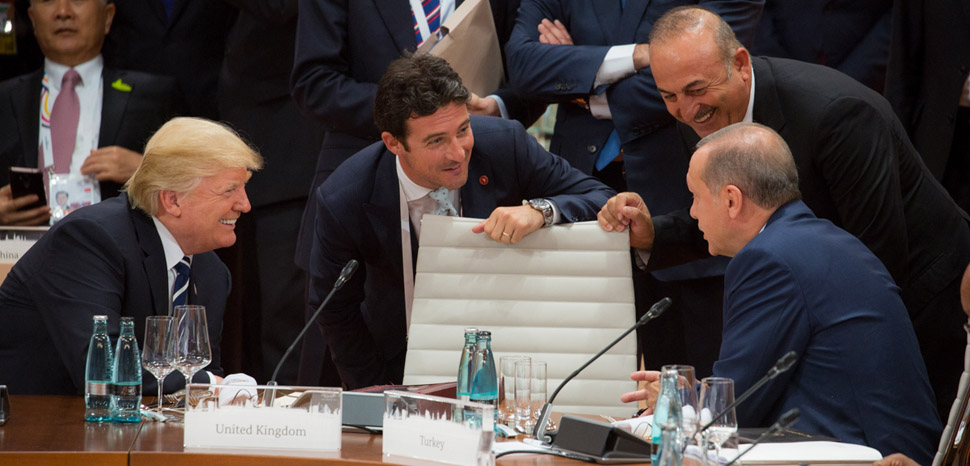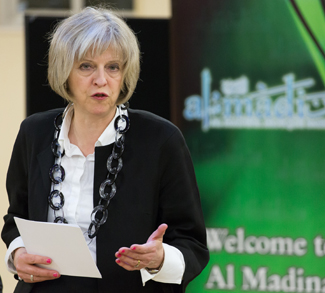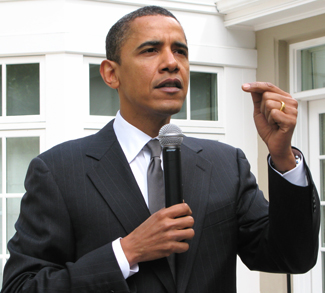The rollercoaster ride that has been President Donald Trump’s foreign policy to date has been a source of profound concern for the main players in the postwar liberal international order.
From pulling out of carefully negotiated multinational treaties and trade pacts, and showing a rather cavalier attitude toward key security alliances such as NATO, it should perhaps not come as a surprise when German Chancellor Angela Merkel bluntly observes that “the United States is no longer a reliable partner.”
But what about the rest of the world? How do smaller emerging nations who don’t hold security council seats or massive market power feel about the Trump doctrine? Do they see opportunities to advance their interests under these new rules, or are they as just as opposed to the risks of American isolationism as the major powers?
When the world’s largest nations bicker over how global relations should be managed, emerging markets tend to be ignored. That is a shame. After all, by 2030 developing countries will account for nearly 60% of the world’s GDP, according to the OECD calculations, and one would assume they have an opinion about how the international system should be structured.
The election of President Trump has been accompanied by unprecedented changes to this system, moving the United States away from the “sticky power” of institutionalism, multilateralism, and interdependency, and back toward something more resembling great power politics, a zero-sum vision that does not prioritize rules or norms. President Trump’s administration appears to have much more in common with Vladimir Putin’s worldview than with Bretton Woods or the World Trade Organization – and this trend is not going unnoticed by leaders from Latin America to Africa and Southeast Asia.
So how does this new doctrine change an emerging country’s growth strategy? For one, there are short-term political consequences for factions which had prioritized close relations with Washington and the West. For many establishment political figures who staked their reputations on the fruits of alliance with the US, this is a disappointing moment.
In the coming years, there is going to be a lot of talk about adopting alternative models to achieve growth and prosperity which are untethered from the values that used to be promoted across international institutions. On the one hand, nearly everyone we speak to from Buenos Aires to Johannesburg to Dhaka is in awe of China’s rise, expressing open admiration for their agility to adopt a cooperative developmentalist approach to their regions, one that was already challenging the US model for primacy – even before the Muslim bans, wall proposals, and unflattering comments about Africa.
As the United States retreats from global leadership, many have commented that China will capture the spoils – though in many ways that was happening already. What is more important is after decades spent by the US and other international institutions educating smaller nations about the need to trade within WTO rules, to establish rule of law and basic political and economic freedoms, and meet certain fiscal and policy standards to achieve stability, now all of that seems to have evaporated overnight.
Some leaders, of course, will be delighted to be freed of these constraints. Under the Trump doctrine, they are likely to express a broader range of discretion in how they manage domestic affairs – with a more carefree attitude toward compliance with international standards on human and political rights. There are numerous sweeping changes that come part and parcel along with extremist visions of sovereignty above all else.
Just this week, President Trump’s National Security Advisor John Bolton ordered the Washington DC office of the Palestine Liberation Organization (PLO) to be shuttered, and unleashed a withering attack on the International Criminal Court (ICC) that would sound very familiar in Kampala or Khartoum. In Guatemala, a highly successful UN-based anti-corruption commission is on the verge of closure, and crucial international support to keep it open is plainly lacking.
To the developing world, this shift is dizzying. Democracy promotion, open economies, climate change were America’s priorities. Now, nations in the developing world are forced to reassess their options vis-a-vis the ‘new America.’ And, in this brave new moment, non-Western powers and systems are beginning to look more attractive by the day.
But the Trump doctrine also features negative aspects for emerging countries, especially for certain geostrategic locations where they could manage a swing position between the US, Russia, and China depending on the interests of the day. Now, stuck with fewer choices, these leaders are very well aware of Beijing’s agenda. From the predatory lending and enabling of corruption to acts of territorial aggression, industrial espionage, and rampant intellectual property theft, there are known risks that come with a dependent relationship with China.
Beijing’s charm offensive largely seeks to hide these patterns under a rhetoric which oddly parrots the former international order promoted by the West – celebrating inclusivity, cooperation and mutual benefit, while conveniently avoiding issues like liberty and representation. President Xi’s willingness to recognize and promote a “community of common destiny,” illuminates the contrast with the United States.
This is unambiguously negative for US interests. In January, while Trump was requesting Congress to allocate funds for the US-Mexico border wall, China sent delegates to Chile, inviting Latin American leaders to participate in the Belt and Road Initiative. Months later, as Trump bullied US allies at the NATO summit, China was wrapping up the “16+1 summit” in Bulgaria, where Chinese investment and diplomatic relations were marketed to Central and Eastern European leaders. And most recently, Chinese President Xi Jinping wrapped up his travels throughout Africa, where he was visiting with heads of state and deepening China’s relationships with the continent of the future, while America picks a one-sided trade fight with Rwanda.
We are chronically overlooking the ground America is ceding in relations with the developing world. Not long from now, today’s ‘emerging markets’ will have emerged. As Angel Gurría, the OECD’s Secretary-General said: “the newfound prosperity in the developing world represents an enormous opportunity for citizens in the developing and developed world alike.”
The US has much to lose from the engines of tomorrow’s economy shifting their development strategies within China’s orbit. While we in the US recover from whiplash, let’s just remember that the rest of planet isn’t waiting for us.
Peter Schechter is a political analyst, author, co-host of the Altamar Podcast, and former founding director of the Atlantic Council’s Adrienne Arsht Latin America Center. He can be found on Twitter at @PDSchechter.
The opinions, beliefs, and viewpoints expressed by the authors are theirs alone and don’t reflect the official position of Geopoliticalmonitor.com or any other institution.




